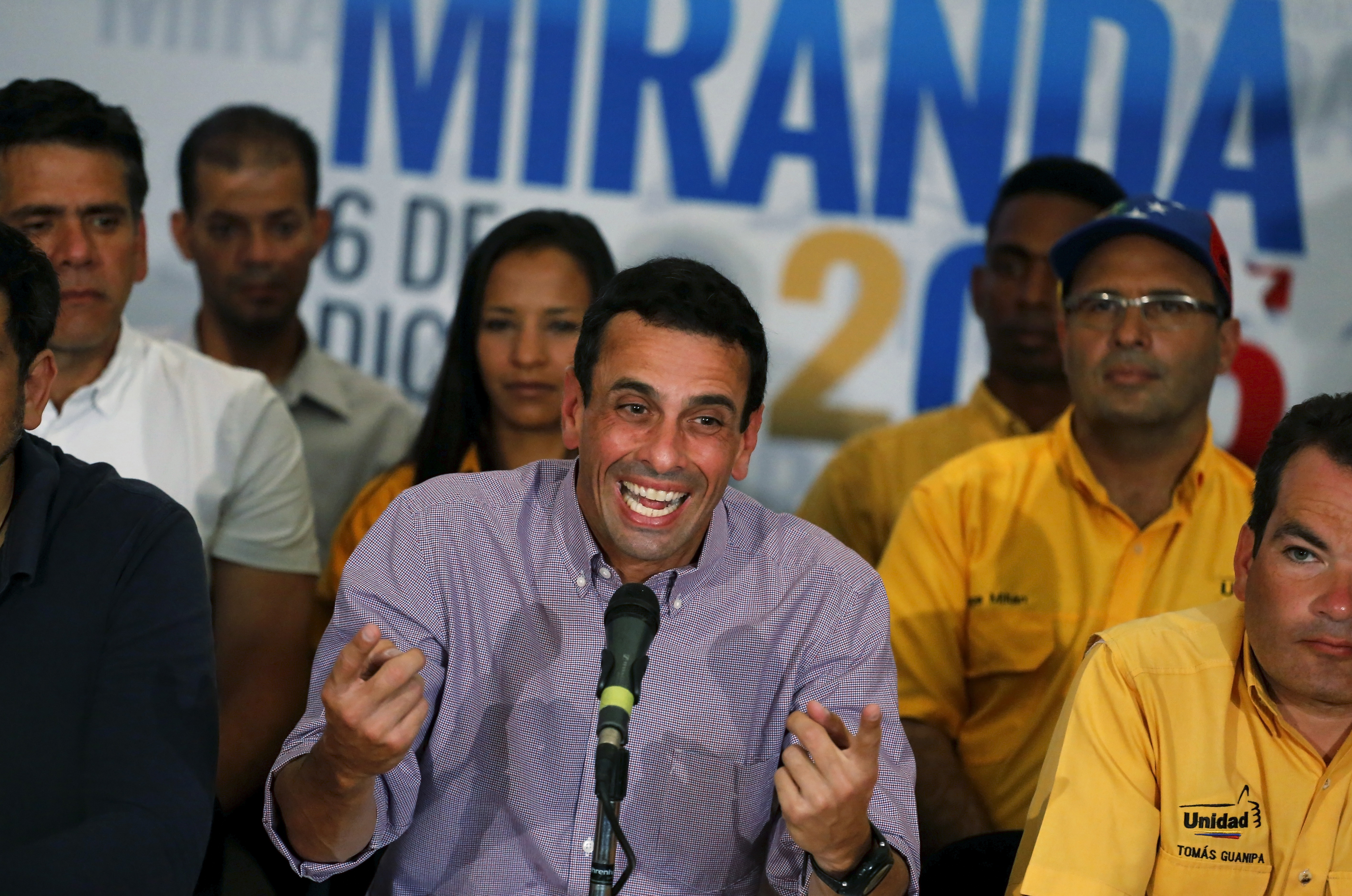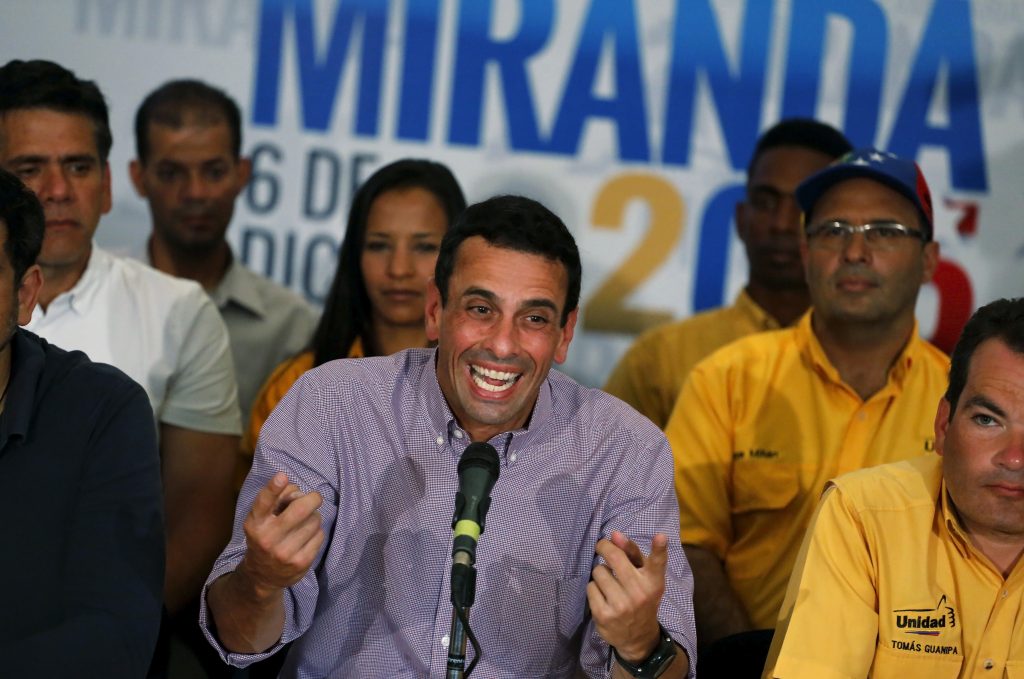
Opposition must set aside differences and focus on people’s interests, says Atlantic Council’s Peter Schechter
Venezuela’s opposition has won an absolute majority in Congress that gives it the ability to initiate a recall referendum against President Nicolás Maduro, but it must instead focus on staying united and showing that it has the people’s interests as its number one priority, said Peter Schechter, Director of the Atlantic Council’s Adrienne Arsht Latin America Center.
Peter Schechter discussed the challenges for Maduro and the opposition in an interview with the New Atlanticist’s Ashish Kumar Sen. Here are excerpts from the interview.
Q: What is the significance of the opposition’s victory in Venezuela?
Schechter: It has just been officially noted that the opposition has won 112 seats and there are still some seats to be decided. That is an absolute majority, so the significance of that is almost indescribable because Venezuela’s government will be very different at the beginning of 2016. You have had a major authoritarian regime that had the veneer of democracy with no real counterbalance for the last sixteen years. Next year we will continue to have an authoritarian regime with a veneer of democracy, but now, suddenly, there is a major counterbalance. You will have an activist Congress with the ability to undo laws, destroy budgets, call in Ministers, and provide constitutional amendments. We are in uncharted waters and the powers of this Congress are very large.
Cohabitation has never occurred in this way under the system set up by [the late Venezuelan President] Hugo Chávez. He created a Bolivarian constitution. It was always presumed that the system would be run to fit the Bolivarian desires because they would always have the majority. They never wrote this thinking they would lose an absolute majority.
Q: Now that it has a supermajority in Congress do you expect the opposition to initiate a recall referendum against President Maduro?
Schechter: The opposition does have the ability to begin a recall procedure. The question is whether they want to do it. There are some very profound differences of opinion about whether that is something that should be done. You could well argue both sides.
On the one hand you could say the country is crumbling; why not leave Maduro, the author of the disaster, in office so that the continued weight of the crumbling falls squarely on his shoulders? On the other hand you could say increasing massively the political pressure on him would result in his replacement. But the problem is that you don’t know what comes after he is gone.
My own view is that it is important for the opposition to solidify its credentials as a problem-solving organization. Not only one that solves political problems, but one that turns Congress into an institution that addresses the problems of everyday Venezuelans.
Q: Has President Maduro become a liability for the PSUV [Venezuela’s ruling United Socialist Party of Venezuela]?
Schechter: Maduro has undoubtedly become a liability to his party. There is no doubt in my mind that Maduro will not run again in 2018. Only two questions remain: first, if he doesn’t run again in 2018, who will? The chances are high that it would be one of two people — Diosdado Cabello, the President of Congress, or Ana Gabriela, Chavez’s daughter.
The other question that remains is will the PSUV make a decision that Maduro needs to leave before the next election? That would constitute an informal coup d’état.
Q: What effect is the election result likely to have on the Maduro government?
Schechter: I have always worried about a dark lining of the sunny day of an absolute majority. We are entering into new territory here in which we could envision the government collapsing in total panic.
The Maduro government has no experience with cohabitation. This is not like in America where we have a Democratic President and a Republican Congress. This is a party with a profound authoritarian bent and a party rife with serious corruption and criminal activities.
One of the things that concerns me is that you might have Ministers and senior party leaders who see the writing on the wall and disappear into the night with suitcases full of money. If that begins to happen, Venezuela could collapse into utter bedlam. That is in no one’s interests.
The opposition could well begin to go from ministry to ministry investigating corruption. Of course, corruption must be investigated. But the consequences could be to foment panic among the government. We have seen authoritarian regimes collapse under their own corrupt weight. If we start seeing panic spread in the PSUV, we could see a situation of total disorder in Venezuela.
Q: Unity has been the biggest challenge for the opposition. Can the opposition stick together now and seize this historic opportunity, and what’s on the line if they don’t?
Schechter: The Venezuelan opposition has a historical genetic flaw in its inability to stick together on any issue beyond opposition to the government. They did a good job of staying together in this election even under great stress with one of the major opposition leaders — Leopoldo López in jail — and the other major opposition leader — María Corina Machado — harassed on a daily basis. And yet they maintained unity. That is laudable. But unity seems to always collapse when the opposition is required to have forward-looking policies of different subjects. It is the lack of agreement on specific policies along with a lot of infighting about leadership that seems to always trip up unity.
In this case, there are real differences among leaders. Henrique Capriles’ view is that the opposition should adopt a policy of constructive engagement, promoting policies, taking on issues, and in particular concentrating on the economic issues.
Whereas the hardliners — Leopoldo López and María Corina Machado — take the view that the opposition will never be able to run a government unless the Bolivarian experiment collapses entirely and it is the opposition’s responsibility to help that collapse along.
This is going to undoubtedly create some fissures. They will never be able to agree, so what is important for them is to set priorities and timetables and try to assure Venezuelans that their issues are uppermost in their minds. Later, one can take on the more political issues of government.
Q: Do the election results mark the beginning of the end of chavismo? And what is Hugo Chávez’s legacy?
Schechter: I do think it marks the beginning of the end of chavismo, but the final chapter may take a long time coming. What many forget is that there seems to be a floor of about 30-35 percent Venezuelans who will still vote for the PSUV notwithstanding the failed economy, the spiraling murder rates, corruption scandal after corruption scandal.
This party is going to have to evolve. It won’t be able to withstand the prying open of the can of worms that is eventually and inevitably going to happen. As light shines on the profoundly corrupt nature of its leaders, the PSUV is going to have to go through an internal purge.
Q: How should the United States shape its policy toward Venezuela in light of the opposition’s victory?
Schechter: The role of the United States is going to be a very delicate one. On the one hand we have seen again and again how US involvement tends to augment the attractiveness of a radical message. So, of course, the United States should act with caution and speak softly. But a bigger stick may be necessary.
A lot of the corruption has to do with allowing narcotics traffic to use Venezuelan territory, ports, trafficking as a conduit to bring drugs into the United States and Europe. There is no doubt that the United States is going to have to be active in helping Venezuelans get to the bottom of this. We have seen a harbinger of what is to come in the recent arrest in Haiti of the nephews of President Maduro — who were arrested and brought to the United States on drug charges. This is only the beginning of the profound nature of what is going to happen in terms of US cooperation on drug-related corruption issues.
Ashish Kumar Sen is a staff writer at the Atlantic Council.
Image: Venezuelan opposition leader Henrique Capriles speaks to journalists during a news conference in Caracas, Venezuela, on Dec. 7. (Reuters/Nacho Doce)
